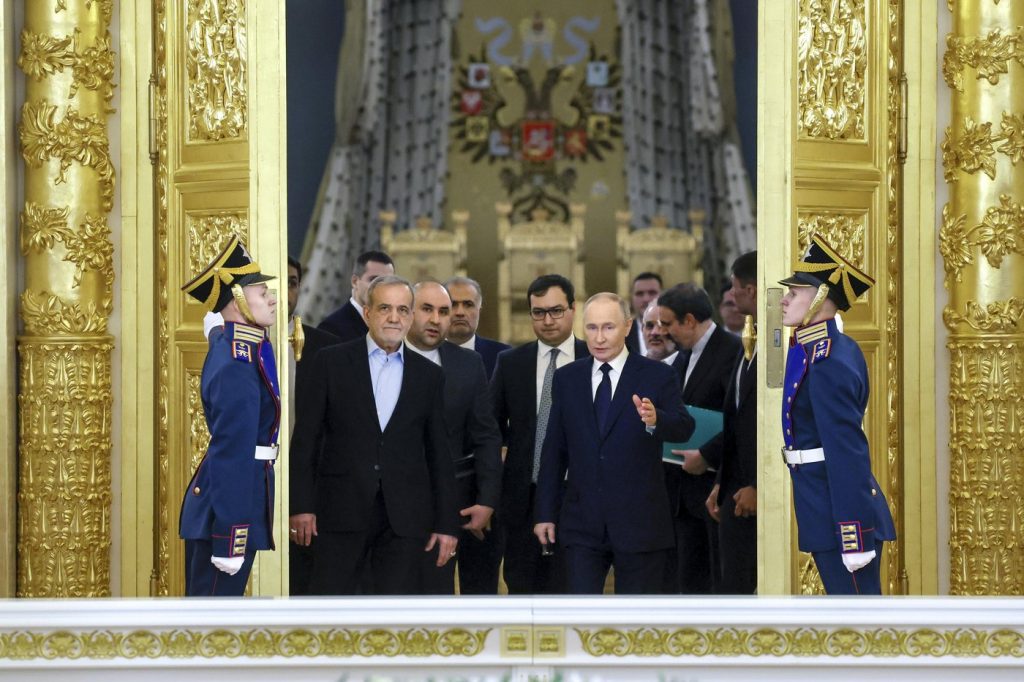Russia has successfully maintained a complex diplomatic balancing act in the Middle East for decades, nurturing warm relations with Israel while simultaneously developing robust economic and military ties with Iran. However, recent military strikes by Israel on Iranian nuclear and military facilities, which resulted in the deaths of prominent Iranian generals and scientists, have placed Moscow in a precarious situation. The conflict's escalation requires careful diplomatic maneuvering by Russia to maintain its relationships with both nations, but it could also provide an opportunity for Moscow to position itself as a power broker in the resolution of the crisis.
Some analysts in Moscow believe that the intensifying confrontation between Israel and Iran might divert global attention from the ongoing war in Ukraine, potentially weakening Western support for Kyiv. Russian President Vladimir Putin reached out to both Israeli Prime Minister Benjamin Netanyahu and Iranian President Masoud Pezeshkian to discuss the conflict, advocating for de-escalation. During his communication with Pezeshkian, Putin condemned Israel's actions and expressed Russia's readiness to help mediate a resolution regarding Iran's nuclear program.
In a strongly worded statement, Russia's Foreign Ministry denounced the Israeli airstrikes as "categorically unacceptable," warning that the consequences of such provocations would fall on Israeli leadership. The ministry urged both nations to exercise restraint to prevent further escalation and potential full-scale war. Nevertheless, despite this condemnation and the strategic partnership treaty with Iran, Moscow has signaled no intentions of providing more than political support to Tehran.
Meanwhile, in his call with Netanyahu, Putin stressed the necessity of resuming negotiations to resolve issues surrounding Iran's nuclear program through political means. He emphasized the importance of close communication with both Iran and Israel to navigate current tensions. Putin also discussed the situation with U.S. President Donald Trump, highlighting Russia's willingness to mediate and its proposed steps aimed at reaching mutually acceptable agreements in U.S.-Iran negotiations regarding the nuclear program.
Historically, relations between Moscow and Tehran were often fraught with tension, especially during the Cold War when Iran was allied with the United States. However, post-1991, following the collapse of the USSR, ties between Russia and Iran strengthened significantly. Russia became a key trade partner and a major supplier of military technology to Iran, establishing projects like Iran's first operational nuclear power plant in Bushehr in 2013.
Following the civil war in Syria that began in 2011, Moscow and Tehran collaborated militarily to support Bashar Assad’s regime, achieving significant territorial gains. The West has alleged a military collaboration between Russia and Iran, particularly as Russia sought support in its ongoing conflict in Ukraine. In January 2025, a comprehensive strategic partnership treaty solidified closer political, military, and economic relations between the two nations.
Despite Moscow's partnership with Tehran, Israel has also been a significant consideration in Russian foreign policy. Since restoring diplomatic relations with Israel in 1991, the two countries have fostered a robust relationship encompassing political, economic, and cultural exchanges. Even during periods of heightened tensions, such as the downing of a Russian reconnaissance aircraft by Syrian forces in 2018, relations have endured.
Notably, Russia's provision of S-300 air defense systems to Iran has not prevented Israeli airstrikes, and Moscow has delayed additional arms deliveries, reflecting its sensitivity to Israeli security concerns. Israel, in turn, has refrained from supplying Ukraine with military aid, indicating a consideration for Russian interests amidst the ongoing conflict.
In this tense environment, Russia's dual engagement with both Israel and Iran could potentially position it as a trusted mediator capable of facilitating future agreements, particularly concerning Iran’s nuclear program. Although the prospects for renewed negotiations appear bleak, any resumption of talks may see Russia playing a critical role, especially regarding the transfer and conversion of highly enriched uranium from Iran.
Furthermore, the Iranian strikes could elevate global oil prices, indirectly benefiting Moscow's economy amidst sanctions and financial struggles. Analysts suggest that increased Middle Eastern tensions might shift focus away from the conflict in Ukraine, providing Russia with a more favorable operational environment as it pursues its military objectives there.










